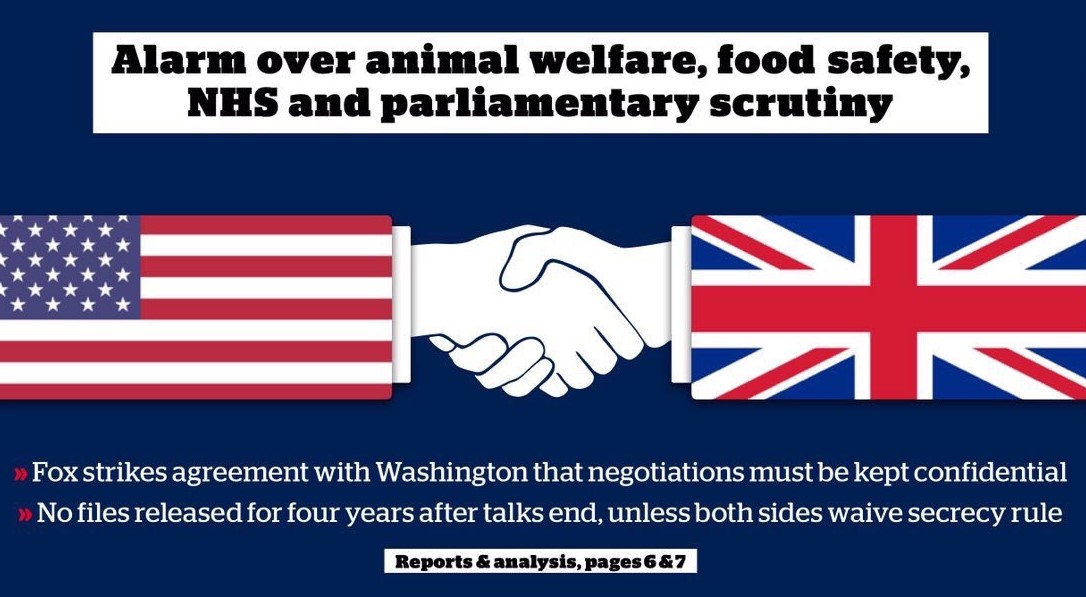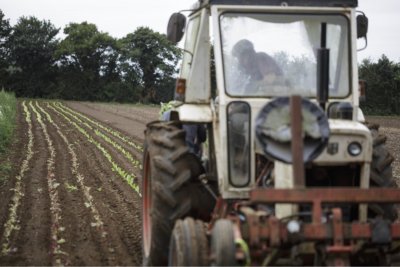News • Good Food Trade Campaign
Michael Gove says he'll protect British food and farmers after Brexit - but powerful US companies have other plans
On Thursday 21 February i news carried an opinion piece by Sustain chief executive Kath Dalmeny about the risks to UK food and farming standards of a future trade deal with the United States.

On Thursday 21 February MPs will debate a future trade deal with the United States. In a speech to the National Farmers Union earlier this week, Environment Secretary Michael Gove told farmers the government will protect them against cheap food imports after Brexit. He hinted at an imminent announcement of tariffs on imported meat and dairy, so British farmers would not be priced out.
Elsewhere, International Trade Secretary Liam Fox has refused to rule out zero tariffs. It must make for interesting Cabinet meetings.
This issue has been brewing since the referendum, with Brexiteers arguing that exiting the EU will allow us to strike our own trade deals and import cheap foreign food, and the farmers saying this would put them out of business.
UK consumers have their own view. In April 2018 an IPPR poll found that only 8% of the public thought the UK should lower food safety standards in exchange for trade with the US.
Currently, under EU rules, UK consumers are protected from chlorine washed chicken, and irradiated or hormone treated meat. Hundreds of pesticides banned in the EU are allowed on US farms. These intensive techniques may produce cheaper food, but they also mask low animal welfare, low hygiene, poor quality and over-reliance on antibiotics. A study by the Alliance to Save Our Antibiotics released in 2018 found that the use of antibiotics per animal in US farming is over five times as high as in the UK.
The US claims their farming techniques are perfectly safe, but our research found that the percentage of people who fall ill with food poisoning annually may be up to ten times higher in the US than the UK.
We often hear the argument that UK consumers will have the choice not to buy these products. But how will we know what we’re buying? The US recently ruled that controversial ‘pink slime’ can be labelled as ground (minced) beef. We also know the US objects to food labelling that flags a product’s origin or how it’s produced, knowing consumer are unlikely to choose a product labelled ‘produced with antibiotics’ or ‘treated with hormones’.
Furthermore, when did you last see informative labelling for the meat in your hospital meal, restaurant dish or lunchtime sandwich?
Tomorrow Parliament will debate a possible future trade deal with the United States. Powerful US lobbyists, supported by the US Government, have already made it abundantly clear that if the UK wants a trade deal, we need to accept lower food standards. They want us to abandon our ‘safety first’ policy to food, weaken our food label rules, accept chlorine-washed chicken and hormone-grown beef – and now presumably also ‘pink slime’.
Some believe cheap food is good food. We don’t agree. Higher quality food like that produced in the UK is better for our health, the UK countryside, climate change and jobs in rural communities.
MPs must take a firm stance tomorrow, forcing government to use everything in its power: tariffs, quotas, standards and legislation to keep low quality, low standard, and potentially dangerous food off our plates.
Kath Dalmeny, Chief Executive of Sustain, the alliance for better food and farming
https://inews.co.uk/opinion/comment/michael-gove-brexit-food-standards-tariffs/
Published Wednesday 20 February 2019
Good Food Trade Campaign: Campaigning for good trade that benefits people and the planet at home and overseas.





